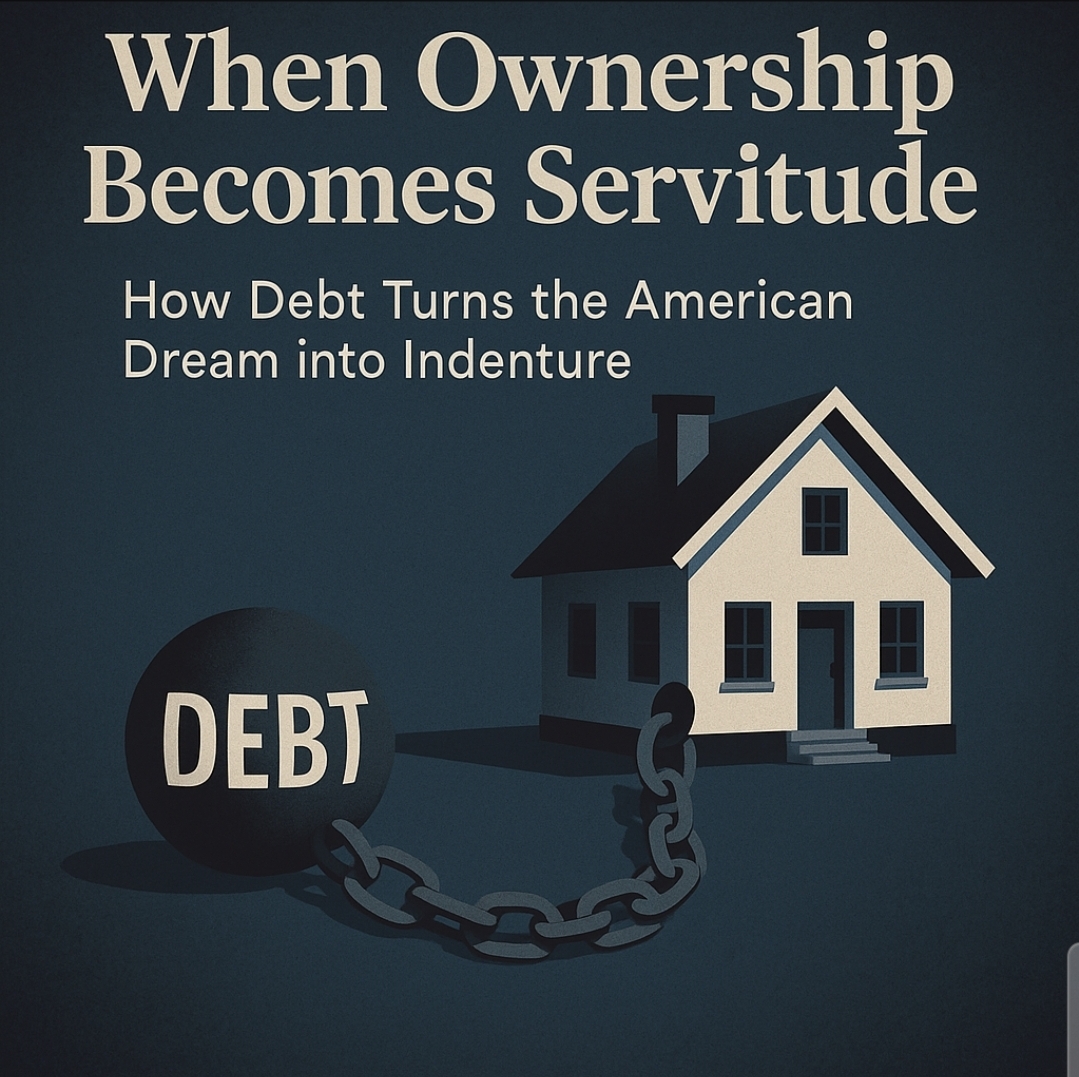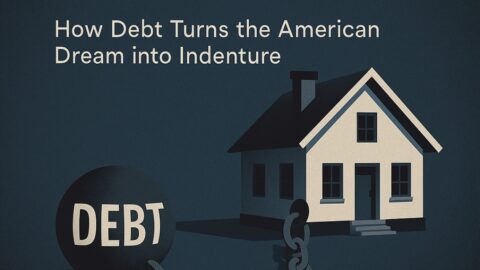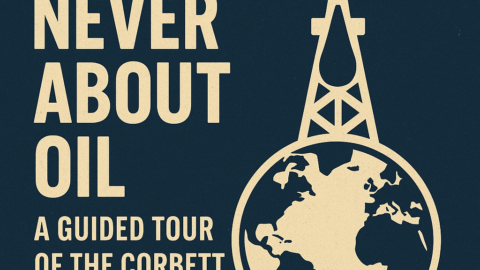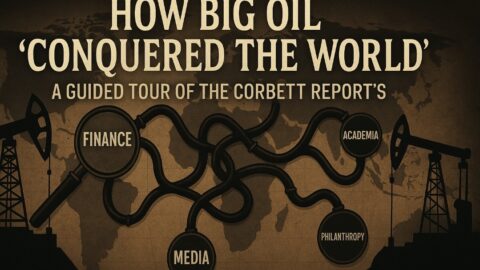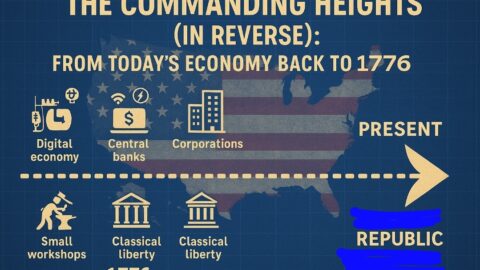“The things you own end up owning you.”
Most people nod at that line like it’s poetic. But it’s not poetry—it’s accounting. It’s spiritual accounting, time accounting, and chains-you-can’t-see accounting. When a house, a car, a lifestyle, or even a reputation requires 30 to 40 years of your future labor to keep it fed, it’s not just an “asset.” It’s a master.
And in our day, the cleverest way to make free people unfree is not to conquer them with armies, but to convince them to volunteer for debt. We don’t call it slavery; we call it “the American Dream.” We don’t call it indenture; we call it “convenient monthly payments.” We don’t call it bondage; we call it “building your credit.”
Let’s walk through it.
From property to payment to captivity
In older America, the point of owning land or a home was freedom: grow food, shelter your family, pass something on. Today the point of a home, for many, is leverage: stretch to the limit of what the bank will let you borrow, pray nothing breaks, hope the market goes up.
A 30-year mortgage is not just “buying a house.” It is selling 30 future years of your labor to a lender you’ve never met. You are promising: “No matter what happens to my health, my marriage, my job, my town, I will work for you first.” Miss a few payments, and you’ll learn quickly who really owns what.
Now stack on top of that a $60,000–$80,000 truck or SUV payment—a depreciating thing that lives outside and rusts—and you’ve basically created a two-master system:
- Housing master
- Transportation master
Both eat first. You eat second. Your kids eat…whatever is left.
That is indentured servitude with Bluetooth. It looks nicer than the 1700s version, but the logic is identical: “I will work X years to pay off this obligation, and until I do, my options are severely limited.”
How debt shrinks the soul
Debt doesn’t just take money; it narrows possibility. You can’t leave a toxic job. You can’t stay home with the kids for a season. You can’t move to care for aging parents. You can’t take a lower-pay, higher-purpose role. You can’t tell your boss, “No, that’s unethical.” The lender is now in the room for every decision.
That’s why Scripture keeps pushing us toward freedom: “Owe no man any thing, but to love one another.” Debt diverts love. Instead of directing resources to people (kids, church, neighbors, the poor), we direct it to institutions. Instead of serving God and neighbor, we serve principal and interest.
The quiet generational tragedy
Here’s the part that hurts: we’re teaching our kids to do it to themselves.
- We celebrate the big, over-mortgaged house as “success.”
- We cheer the $70k truck as “you deserve it.”
- We normalize student loans as “the only way.”
- We model buying wants now and pushing pain to future-you.
So the next generation learns: adulthood = payments. Not stewardship. Not margin. Not generosity. Payments. We have made financial captivity the rite of passage.
That’s the inversion of biblical/Judeo-Christian family life. Parents are supposed to free the next generation—wisdom, skill, land, capital, faith—not saddle them. But consumer culture catechizes better than most churches: “Buy now, pay forever. Your identity is what you drive.”
Why this is a form of slavery
Slavery has always had two key ingredients:
- Control of labor
- Lack of real exit
Modern debt can achieve both.
- If 60–70% of your take-home is pre-committed to mortgage + car + taxes + subscriptions, your labor is effectively owned.
- If selling the house would cost you, if selling the car would strand you, if moving would break your kids’ school/childcare puzzle, your exit is fake.
Add in inflation (which quietly robs your savings), add in taxes (which fund a system you don’t always agree with), add in digital subscriptions (that drip money out every month), and you have the softest, most polite slavery in history. No whips, no chains—just autopay.
But “everyone does it”…right?
That’s exactly how bondage gets normalized. When everyone is stretched, nobody sees it as slavery. It just becomes “the economy.” The lender class calls it “growth.” Realtors call it “rising values.” Politicians call it “homeownership rates.” Ad agencies call it “living your best life.”
But if you zoom out and ask: Can the average family live on one income, raise kids, give generously, and weather a 6-month job loss without panic? — the answer for most is no.
That’s not freedom. That’s precarity dressed up as prosperity.
How “the things you own” end up owning the nation
Now tie this to your bigger project on elite capture: a population in debt is a population that can be steered. If people are two missed paychecks from disaster, they will:
- Accept bad policies to “protect housing values.”
- Stay silent at work to “keep the insurance.”
- Obey nonsense mandates to “keep the job.”
- Vote for whoever promises “relief.”
That’s how personal financial bondage becomes political bondage. Once people are mortgaged to the hilt, the Overton window can move, because people will trade liberty for stability.
The way out (this is the good part)
This doesn’t have to be the story. We can teach a different way:
- Enough > impressive. Buy the house you can easily afford, not the one the bank says you can.
- Used > enslaved. A good $12k car + no payment beats a $70k truck + 7-year leash.
- Margin is freedom. 3–6 months of expenses in cash is like getting your voice back.
- Skills over stuff. Garden, repair, cook, build, teach. Skills are assets no one can repo.
- Intergenerational strategy. Grandparents help with down payments instead of toys; parents help kids graduate with minimal/no debt.
- Tell the truth to the kids. “This is how the system traps you. This is how you stay free.”
- Give while you climb. Generosity breaks the idol of stuff and keeps the heart from worshiping what it owns.
The line we should be teaching
Here’s what we should be telling our children and our churches:
“Debt can be a tool, but long debt for short pleasure is bondage. Don’t trade 30 years of your future for 5 years of impressing strangers. Things are for using; people are for loving. Never reverse that.”
Bottom line:
“The things you own end up owning you” becomes literally true when those things are bought on decades of debt. A 30-year mortgage + an $80k vehicle + a consumer lifestyle = a quiet, respectable, church-attending, patriotic indentured servant. We can keep exporting that model to the next generation—or we can repent, simplify, de-leverage, and hand our kids freedom instead of payments.

